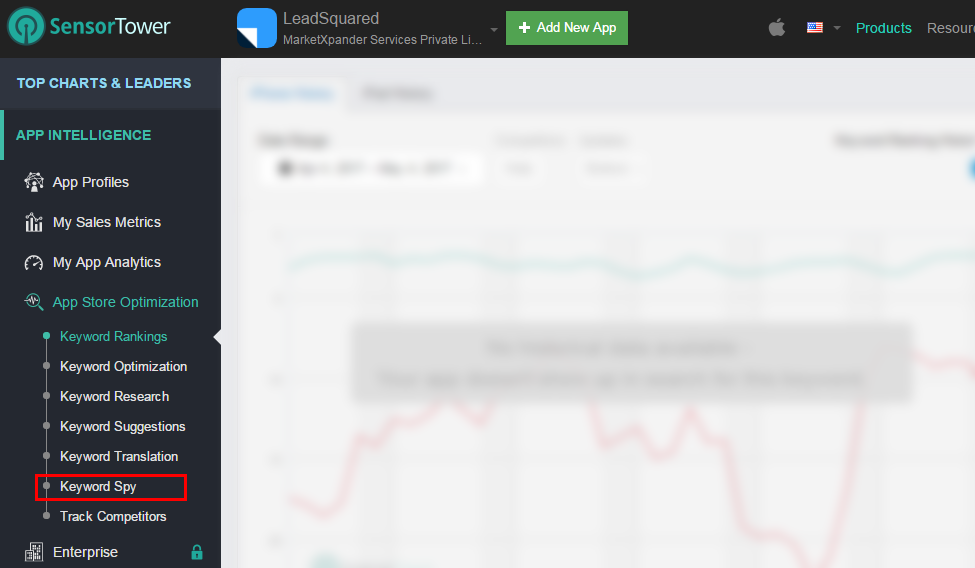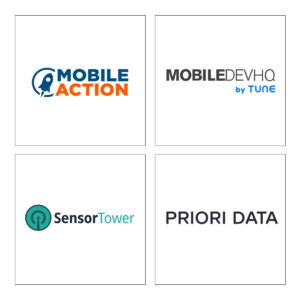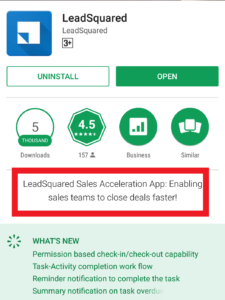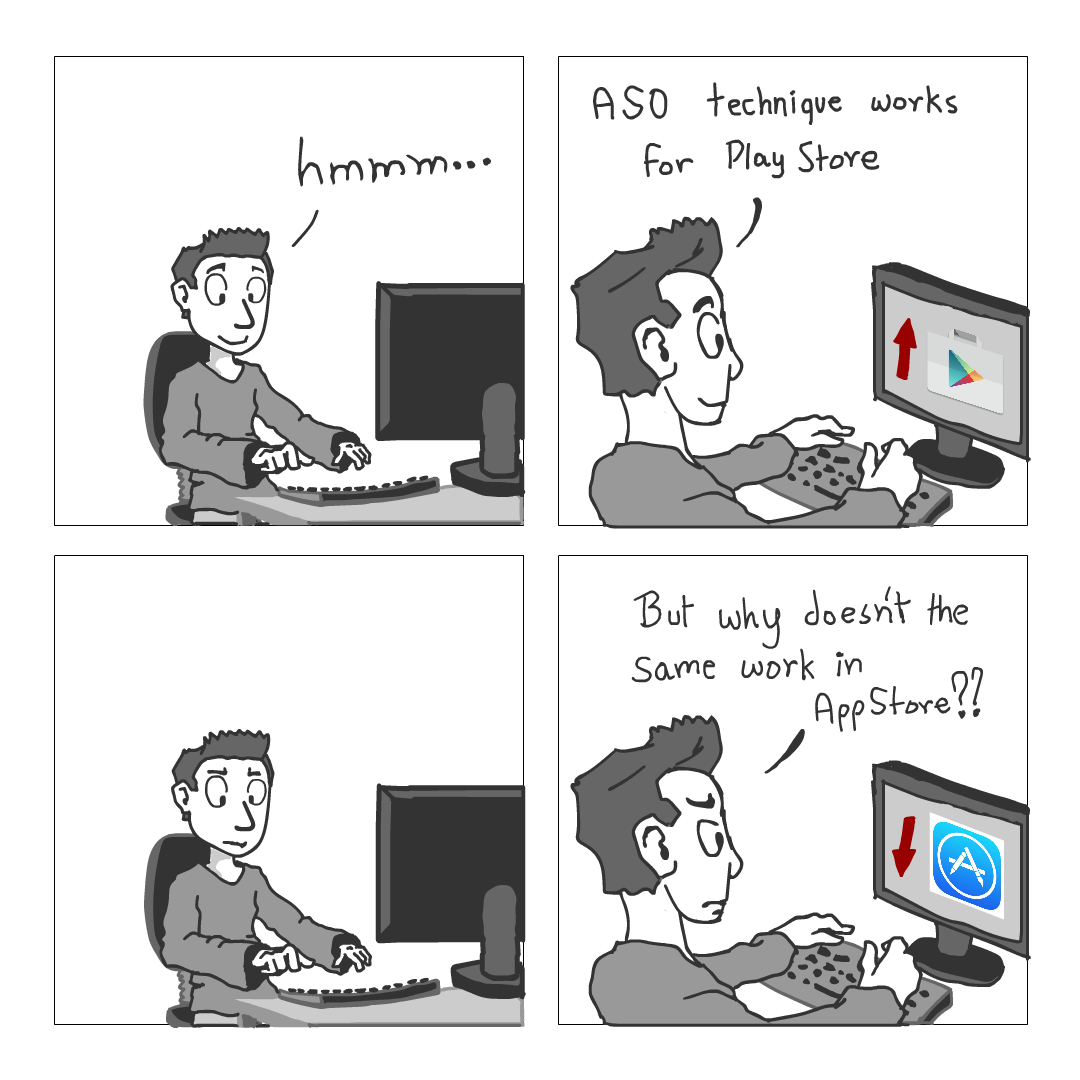
 App store optimization (ASO) is the process of improving the visibility of an application on app stores. Developers put in a lot of effort to create, test and deploy a mobile app on app stores. Sometimes the visibility of these apps is not as good as expected even after creating a wonderful app with top-of-the-notch functionalities and an appealing UI. Does this happen with you too? Let me remove your woes!
App store optimization (ASO) is the process of improving the visibility of an application on app stores. Developers put in a lot of effort to create, test and deploy a mobile app on app stores. Sometimes the visibility of these apps is not as good as expected even after creating a wonderful app with top-of-the-notch functionalities and an appealing UI. Does this happen with you too? Let me remove your woes!
In this webinar, Akhil Chandra, Founder & CEO of Studio Mosaic will tell you all about a few steps you should take to optimize and rank your applications higher on app stores.
Did you miss the webinar? Don’t worry, we’ve got you covered! :)
Here’s a compiled list of few of the questions asked during the webinar: –
App Store Optimization
1) Is search term in Keyword Planner useful for selecting keywords for app stores?
Google’s keyword planner does tell us about the monthly searches and competition for a certain keyword, however, the data provided by it is unique to the keyword’s performance over the search engines and not on app stores. It can be used as an input mechanism to create a list of your keywords, but selection for keywords needs to happen based on data that talks about the traffic and difficulty of the keyword on app stores.
2) Where do I see traffic volume and keyword difficulty for a certain keyword?
Sensor Tower provides you with the traffic volume and keyword difficulty for various keywords.

3) For a News app which covers news from 196 countries, is mentioning the name of all the countries in the app description the right way to rank them better in those particular countries?
Mentioning the name of all the countries wouldn’t be very beneficial. Instead, optimizing the description for each country based on the keywords which have more traffic in that country, and then setting up descriptions in their language would be more helpful. Sensor Tower can be helpful for this task. It allows you to check the traffic and difficulty of a keyword based in that particular country.
4) How to find keywords used by competitor apps? Any tools suggestions which would be helpful in finding this?
Sensor Tower can be used to find out the keywords used by the competitor apps.
It has a section called Keyword Spy (App Store Optimization>Keyword Spy) which tells you about the keywords used by the competitor app. All you have to do is enter the name of the app you are competing against.

Also, in Sensor Tower, there is a section called Keyword Research (Appstore Optimization> Keyword Research). On entering any particular keyword, it displays a list of apps which are ranking for that particular keyword along with the traffic and difficulty of that keyword.
5) Can you give ideas for optimizing a real estate app?
The function would depend on what and who the app is for. Is it a brokerage app? Or for sourcing clients and buyers. Such apps can be categorized under Real Estate or Lifestyle. Again the keyword for the app can be selected based on the traffic volume and difficulty of the keyword.
6) Does Google Analytics have any feature to track traffic to the app?
Google Analytics doesn’t provide any feature to track traffic to any app.
7) Are there any free tools available for keyword volume and difficulty?
All the tools mentioned in the webinar do come with a limited period free trial version after which you have to pay for them. There is no good tool which is free at this point of time.
8) Can I show any offer or promo codes in App description?
Promo Codes can be included in the app description. However, they will not increase the search discovery of your app. They can certainly improve the conversion rate of the app download. People may be incentivized to use your app once they discover your app and find out about your promotional offer.
Always write lines in the description which intrigue people to download your app.
9) Are backlinks a ranking factor for Google Play store apps?
Until last year, backlinks didn’t improve the ranking factor of any app on Play Store. However, this year, rumors suggest that backlinks, especially from mobile search might improve the ranking factor. Since Apple and Google don’t reveal their algorithm to calculate ranks, there is no way to know for sure.
10) Does using highlighters (like using stars and mentioning offers) in the description help in ASO?
Using highlighters will only help in increasing the conversion by incentivizing the user, but it doesn’t help in improving the discoverability or ranking of the app.
11) In Play Store, is there any limit on the same keyword that could be repeated?
There is no limit for repeating the same keyword. However, stuffing the same keyword without well-formed sentences might result in the flagging down of your app. If you form a well-formed sentence and mention the same keyword up to 5 times, it wouldn’t be a problem.
12) Do the steps to be taken to optimize your app, differ across various app store platforms?
Yes, every app store has their own algorithm and criteria to rank apps. So, based on this, the steps to be taken to optimize your app on different app exchange platforms would vary completely.

13) How effectively can we use social media for App promotion?
Recently Facebook has become very strict with its algorithm which sometimes doesn’t allow your advertisements/posts to be visible to the people who liked your page. Acquiring new users from social media cannot happen unless you run ads on Facebook. Use App installation as an objective while running ads. Facebook will then show your ads to people more likely to install based on your targeting options.
Social Media can be more useful as a customer engagement platform to spread awareness about using your app better. Write posts on how beneficial your app can be for your target audiences and publish them on your social media channels. Offer discounts and promotions for installing and using your app on social media.
14) Do we need marketing SDK integration for app promotion on various social media and other platforms?
No integration is required just for promoting your app’s page. If you require the analytics of your ads across various Social Media then you would require an integration using SDKs.
Few third party tools like AppsFlyer would require you to integrate with them and would allow you to run ad campaigns across all social media, thereby reducing the effort of integrating with each social media platform individually.
15) Are SEO and ASO similar in terms of logical flow like keyword research & link building?
Though the concept of SEO and ASO are a little similar. they are entirely different when it comes to technicality. App Store optimization is completely about the metadata that you use, whereas SEO has a lot more to it, which makes them quite different.

16) Would you suggest having a shorter app name which gives us scope to use more keywords?
A shorter name would always allow you to insert better keywords provided it doesn’t interfere with your brand’s image or name.
17) What is the role of visuals for increasing traffic on the app?
Visuals don’t help in increasing the discoverability of the app. They will indeed help you in increasing your conversion rate.
18) Which is the best platform to run app install campaign?? Google Adwords or Facebook?
The performance of the platform depends on various factors like location, category etc. There is no way to say which platform is better as they both have their merits. You should test both to find out which one is better suited for your business.
In my experience, Facebook performs a little better because of the quality of installs I get from Facebook. Retention rates of users who downloaded the app via Facebook posts are higher.
Apple Search Ads which is currently limited to U.S. is also another great platform which is like the SEM equivalent of the mobile app world.
19) Do app usage and user behavior (like the amount of time spent and the number of times the app was used) affect the app store rankings?
The amount of time spent and the number of times an app has been used does have an impact on the app store ranking.
This helps in increasing the category ranking which ranks an app based on factors like uninstall rate, session length, rating, reviews, etc.
20) What is considered as good conversion ratio?
A good conversion ratio varies between each category.
For example, the conversion rates for games tend to be lower.
A conversion rate of 40% is considered good. 30 – 40 % is decent and conversion rates below 25% are bad.
21) How long should the app description video be?
For Apple’s App Store, the video length has a limit of 30 seconds. Therefore, all the videos should be of 30 seconds or less.
For Google’s Play Store, the recommended length of video should not be beyond 1 minute. 40-45 seconds is a nice sweet spot.
22) How much can mobile push notifications (about offer and blogs) help in app retention?
If the push notifications are not so often that people get irritated by it, push notifications do help in app retention.
People always tend to come back to your app if your push notifications provide them with some value. On the other hand, if people constantly receive offers and deals which are not relevant to them, it may cause them to uninstall your app.

Always send push notifications which are relevant to your users
23) Does having separate landing pages on the web and driving traffic through them to an app store, help in discovery?
Most people discover the apps directly through app stores, and discovery through web search is as low as 6% – 8%. So focus on discovery through the phone itself, rather than getting them on the web and from there to the store.
24) How much difference is there in user behavior of iOS vs Android users? Do we need different strategies for both the platforms?
Android apps generally make money through advertisements and in-app purchases are very less. However, in iOS majority of the revenue comes in from in-app purchases. iOS users don’t hesitate to spend money on in-app purchases, unlike android users. Therefore creating apps with less in-app purchases for android would give better results.
25) Does the app size matter for ASO?
Application size doesn’t affect the ASO. However, the application size matters when it comes to user experience since many countries still have a slower internet connection. In such countries, people might hesitate a little to download heavy apps.
Also, many people still use phones which have less memory. People with such phones will hesitate to download heavy apps.
26) Where can we check the data on the number of times an app is viewed and the compare it with the number of downloads?
You can check for this data under Developer Portal in Apple’s App Store and under Google Play Developer Console for Android.
27) What are the reasons for high uninstall rate?
Following are the few reasons for high uninstall rates, there can be many other reasons as well.
- The app isn’t performing as well as it is expected to, crashes frequently.
- User installed the app mistaking it to serve another purpose.
- They could be bored of it (it happens with a lot of gaming apps)
28) Which are the various tools for ASO for checking the traffic and difficulty scores of a keyword?
Here are a few tools which can be used for checking the traffic and difficulty scores of a keyword: –
- Sensor Tower
- Mobile Action
- Mobile DevHQ
- Priori Data

29) How to integrate mobile app and website analytics?
If your question is, whether there is a single tool that does it (mobile app and website analytics), then the answer is yes. You can use Google Analytics, Localytics, Mixpanel, etc. These are a couple of tools that provide analytics for both websites and apps. For apps alone, Flurry and Localytics are the best.
30) When we run non-organic app install campaign for e.g. CPA CPI, how can we identify if the traffic is coming from incent or non-incent source?
The dashboard will tell you from the incent campaign, how many downloads are there. Also, on Apple and Google, there’s a section called ‘Sources’ that gives you this information. It’s not entirely accurate. Besides, there are Analytics tools out there that can measure it for you and tell you.
31) In one of our apps, uninstall rate is higher than install rate, but still our installs on active devices in increasing. Can you suggest what could be the reason?
It could possibly be that the uninstalls are quickly catching up with the increase in the active device numbers, and that should, in some way, come down. If this has been happening for a really long time, then I’m not sure how. But if it’s a recent phenomenon where uninstalls have started increasing and are more than your installs, then perhaps it will take it sometime before your active install figure starts to decline. But eventually, it will have to.
32) If my application receives bad ratings but I still run Facebook and Google campaigns, will it get downloads?
Yes, you will. But obviously, it makes sense to improve the ratings first. Also, a quick hack on iOS is that if you post a new version update, it only shows reviews for the current version and not the previous ones.
33) How many keywords we can focus at a time?
There is a character limit for title, keywords, and description. You can fit as many keywords as possible within this character limit.
34) Is there any way to find out about the most trending keyword on apps, just like the way we have on Twitter about trending hashtags?
Yes, on Apple’s App Store, you can know which are the top searched keywords in your country, if you go to the search page. Google Play Store doesn’t have any such feature as of now.
35) Why are newer apps with low install volume and lower ratings ranked better in play store rankings?
The volume of installs and ratings alone don’t determine the app rank. Many more parameters like the daily volume of downloads, instead of just the total volume till date, uninstallation rate, usage metrics like retention etc. also come into play to decide the ranking of an app on the app store.
36) Google has rules for web SEO to filter out people using malpractices or black hat SEO to rank themselves better. Are there any similar rules in case of ASO too?
There are no such rules as of now. However, Google does these inspections every few months to check for keyword stuffing in the description and also tracks fake reviews. From time to time when they identify such malpractices they reach out to the publisher.
37) Does keyword in the app icon help?
The app icon is an image and not text and therefore it isn’t helpful for getting ranked for a certain keyword.
38) My app is a GST app, and we just have a rupee symbol as our icon. Will it have a negative effect or is it okay?
There isn’t anything wrong with having a rupee symbol as your icon. However, I feel that your app icon should be a little more descriptive. The Rupee symbol itself doesn’t relate to GST.
39) How can we increase retention/decrease the uninstall rate for an app?
To increase retention/decrease the uninstall rate for an app, study why people are not using your app and accordingly make improvements to the product. Low retention and installation rate reflects poorly on the quality of the app and it can therefore only be fixed by making product enhancements.












![[Webinar] Sales Automation 101: Unclog your Sales Pipeline](https://www.leadsquared.com/wp-content/uploads/2024/04/automation-webianr-popup.gif)